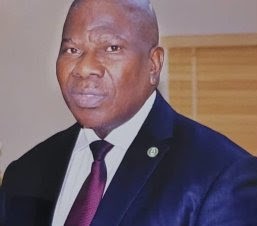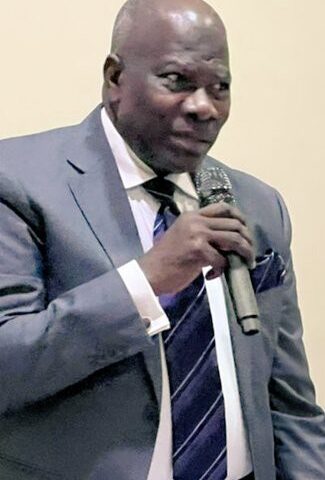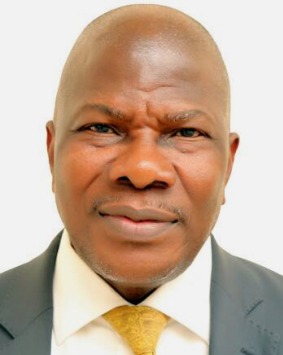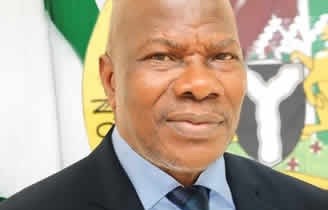WELCOME ADDRESS BY THE COMMISSIONER FOR INSURANCE, NIGERIA AND CHIEF EXECUTIVE OFFICER OF THE NATIONAL INSURANCE COMMISSION (NAICOM) Mr. OLORUNDARE SUNDAY THOMAS AT THE 2021 INSURANCE DIRECTORS’ CONFERENCE HELD AT RADISSON BLU HOTEL, IKEJA, LAGOS ON NOVEMBER 24, 2021.
Protocol,
I want to warmly welcome you all to this important gathering meant for one of the most critical group in the stakeholders structure of insurance companies. The role of the Board of Directors in the success or otherwise of any company remains very vital. This annual conference for Directors of insurance companies is organised to continually remind us of our responsibilities to our various companies and to upgrade our knowledge of recent developments in the sector.
I will want to appeal that respective management of all insurance companies ensure the full participation of members of their board of directors at the conference.
Let me say this for emphasis, this forum should not be seen as a jamboree, but rather serious business where Directors are expected to interact, discuss and compare notes towards aligning and re-aligning their strategic business plans and governance structures to meet certain prevailing socio-economic developments.
I want you to note that as a Commission, we take the participation of companies in this forum very seriously and thus do not take it lightly poor representation and participation by members of board of directors.
Many countries and indeed, economies across the globe have been confronted with numerous challenges in recent years, Nigeria inclusive. The insurance sector notwithstanding its resilience is not immune to this challenges thus the need to constantly retool our business strategies. The theme for this year’s Conference “Insurance Industry in a Changing World” surely speaks to the fact that the world has become ultra-dynamic.
The decisions we have to take as a body are critical to the survival of our entities. I am hopeful that our deliberations here today will provide us the inputs or necessary ingredients that can assist in making policies and strategies that will enhance survival and growth of our various institutions.
The rapid changes brought about by the COVID-19 pandemic in many fronts have drastically opened doors of opportunities for many positive thinking minds and created serious setback for many who are not able to cope with the speed at which some of these changes appeared. An obvious example is the technological advancement in the insurance industry which has been accelerated by the COVID-19 pandemic compelling many of us to shift from the traditional ways of conducting business to more sophisticated and technology driven mechanisms. Indeed, am able to address you this morning virtually because of technological advancement popularised by the advent of the pandemic. While it has not been so difficult for some companies to adapt to the new world order, a lot of other companies have been struggling to cope.
The Commission on its part successfully launched the NAICOM Portal on 1st September, 2021 deployed to ensure effective and efficient interface between the Commission and our stakeholders. The Commission had since directed all operators to integrate their operations with the portal. It is imperative to inform you here that any company that is lagging behind in this regard is inadvertedly phasing itself out of business. Your respective attitude towards information technology funding in your various companies will go a long way in determining the longevity and existence of not only the companies, but the retention of the brand names or corporate identities. This is food for thoughts.
Again, the volatility, dynamism and complexities in the operations of today’s businesses has necessitated the need for a risk-based approach to the way and manner the Regulator conducts its supervision and inspection of insurance entities. It is on this premise that the Commission commenced the implementation of Risk Based Supervision (RBS) of the sector. We incepted the conduct of a pilot inspection of some select companies in September this year preparatory to full implementation and the reports are now being reviewed. Going forward, inspection of insurance entities will be on the RBS approach.
I want to urge you also to follow up on the implementation of International Financial Reporting Standards. IFRS 17 in your companies. The implementation dateline of 1st January, 2023 is right before us. Sufficient capacity building engagements have been conducted and sub-working groups inaugurated to facilitate the migration. You are therefore required to ensure that your entities are in full compliance and ready for the dateline.
On the issue of development of insurance in the country, I will urge the Directors to work closely with their management as a lot is expected from them at the top level. The Commission is working assiduously to open up the market particularly the retail end, conducting engagements with various agencies and state governments on the need to boost insurance culture across the country.
However, the supply side which is the insurance companies must also be proactive with follow-ups in these places. If the industry is desirous of having significant impact on the nation’s GDP, it therefore must take retail business seriously. This has to start from the policy level and the directions clearly spelt out. This also must be supported with massive awareness campaign about insurance products across the geo-political zones taking into consideration peculiarity of each of the regions.
One issue that has been setting the industry on a reverse gear in its developmental efforts is the issue of claims settlement. A few amongst us have been making this work a tedious one by not paying claims promptly. We should know as a fact that insurance business is about payment of genuine claims and anything short of that will continue to hurt insurance business in the country thereby giving the industry poor reputation, perception and image. I urge you to look at this issue at your level and deal with it decisively as it has continued to give the industry a bad name.
I must thank you all for your support to the Federal Government in fighting the pandemic which has earned us the confidence of the government, particularly that of His Excellency President Muhammadu Buhari, GCFR. As I said in one of our gatherings recently, the industry in its more than 60 years history has never had it this good in terms of recognition, closeness and positive relationship with the Federal Government and by extension, the states. We should take this as a golden opportunity to take insurance to its rightful place in our economy.
We indeed manage an industry that helps others to survive but, you may all agree with me that the insurance industry needs to survive first in order to conveniently shoulder the responsibility of helping other businesses to survive. The future of insurance is arguably the future of our economy. We are all leaders in our own rights and the success or failure of the sector is in our hands as decision makers.
I thank you for attention and wish you a successful Conference.
O. S. Thomas
Commissioner for Insurance, Nigeria





